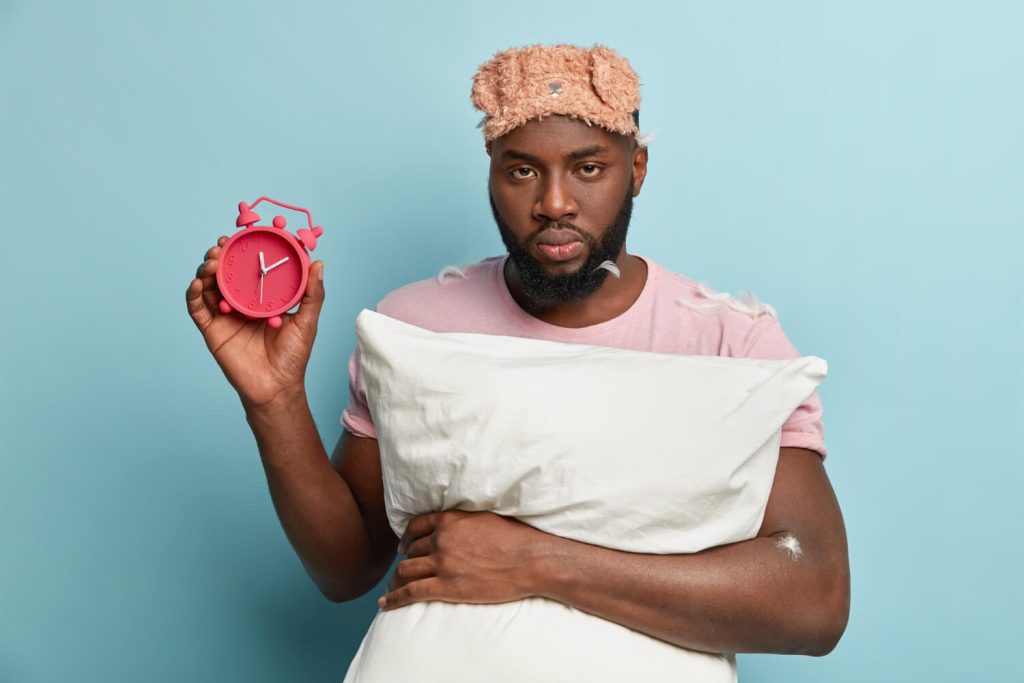We’re constantly bombarded with messages about the importance of sleep, but how much sleep is enough? Is it 8 hours, as we’ve often been told? Or could it be more, or even less?
Let’s cut through the confusion and get to the heart of the matter. As Caroline Kee of Today.com aptly puts it, “your sleep need is the number of hours you would sleep naturally—without external constraints or alarms—in order to wake up feeling rested and function the next day.” This definition highlights that sleep needs are highly individual. Some people might naturally need 9 hours to feel their best, while others might thrive on 7. The key is to figure out what works for you and make sleep a non-negotiable priority.
Sure, sleep needs can vary. However, aiming for at least 6 hours of sleep in 24 hours (including naps) is crucial for most adults. While some people might claim they can function on less, research consistently shows that chronic sleep deprivation below this threshold can have serious consequences for physical and mental health, as we discussed in our post on The Science of Sleep.
Factors Affecting Your Sleep Need

Several factors can influence how much sleep you need. These include:
- Age: Our sleep needs change dramatically throughout our lifespan. Newborn babies require up to 14-17 hours of sleep daily to support their rapid growth and development. As we grow older, our sleep needs gradually decrease. Toddlers and preschoolers typically need 10-13 hours, school-aged children need 9-11 hours, and teenagers need around 8-10 hours. By adulthood, most of us need 7-9 hours of sleep to function optimally, although some individuals may naturally require slightly more or less. Older adults may experience changes in their sleep patterns and may need slightly less sleep than younger adults, but quality sleep remains crucial for their overall health and well-being.
- Genetics: Our genes play a significant role in determining our natural sleep patterns and preferences. Some people are genetically predisposed to be “short sleepers,” meaning they naturally require less sleep than average, while others are “long sleepers” who need more than the typical 7-9 hours. These individual variations are often linked to differences in our circadian rhythms, the internal biological clock that regulates our sleep-wake cycle.
- Activity Levels: If you lead an active lifestyle and engage in regular exercise, your body will need more sleep to recover and repair muscles, replenish energy stores, and consolidate the benefits of your workouts. Athletes and individuals with physically demanding jobs may need more sleep than those with sedentary lifestyles.
- Stress Levels: Stress is a notorious sleep thief. When you’re under pressure, your body produces stress hormones like cortisol, which can interfere with sleep onset and quality. During particularly stressful periods, you might find that you need more sleep to compensate for the toll that stress takes on your body and mind.
- Health Conditions: Various health conditions can significantly impact your sleep needs. Chronic pain, such as that associated with arthritis or fibromyalgia, can make it difficult to fall asleep and stay asleep, requiring additional rest for recovery. Sleep disorders like insomnia and sleep apnea can disrupt sleep architecture and necessitate longer sleep durations to compensate for poor sleep quality.
- Medications: Certain medications can interfere with sleep, either by directly impacting sleep-wake cycles or by causing side effects like restlessness or anxiety. If you’re taking any medications and experiencing sleep problems, it’s crucial to talk to your doctor about potential adjustments or alternatives.
So How Much Sleep Do People Need?

While these factors provide a general framework, it’s important to remember that sleep needs are highly individual. The best way to determine your ideal sleep duration is to pay attention to your body’s signals while experimenting. Here are a few ways to do that.
- Track Your Sleep: Keep a sleep diary for a week or two, noting how much you sleep each night and how you feel upon waking. Does 7 hours make you feel refreshed or do you need closer to 9? This can help you identify patterns and determine how much sleep leaves you feeling most refreshed.
- Prioritise Sleep: Make sleep a priority and give yourself enough time to get the rest you need. Avoid sacrificing sleep for work, social activities, or other commitments.
- Listen to Your Body: Pay attention to how you feel throughout the day. If you’re constantly feeling tired, irritable, or struggling to focus, it could be a sign that you need more sleep.
- Consult a Sleep Specialist: If you’re having trouble figuring out your sleep needs or experiencing chronic sleep problems, consult with a sleep specialist. They can help you assess your sleep patterns and recommend strategies for improving your sleep quality.
The Importance of Prioritising Sleep
Remember, sleep isn’t a luxury; it’s essential for your physical and mental health, productivity, and overall well-being. As we discussed in our posts on Sleep and Productivity and Tossing and Turning in Bed? Common Sleep Problems and How to Reclaim Your Rest, sleep deprivation can have a wide range of negative consequences, from impaired cognitive function and decreased productivity to increased risk of chronic diseases. By prioritising sleep and ensuring you get enough rest, you invest in yourself. So, make sleep a non-negotiable part of your routine, and give your body and mind the rest they need to thrive.


